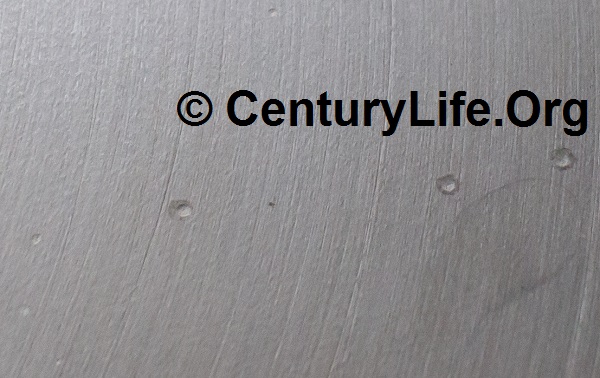Salting the water in a stainless steel pot before heating the water can lead to pitting tiny bits of rust on the stainless surface.
Salt pitting stainless steel pan.
The slightly longer answer concerns the matter of pitting in stainless steel generally and the fact that stainless steel ss is not as it s name implies entirely corrosion p.
Many types of stainless steel alloys will suffer extreme pitting corrosion when exposed to environments that are rich in chlorides such as salt.
It s a simple mistake but pitting is irreversible.
Clean the affected area.
Is it ok to put salted pieces of meat onto a stainless steel with just oil in it sent by rubyeditor.
It typically occurs when larger salt crystals such as coarse sea salt sink to the bottom of the pan before the water is heated and are allowed to react with the stainless steel lining while the water is heating.
See clean stainless steel and platinum sub zero use and care guide or wolf use and care guide.
However things are different when a grain of salt sits at the bottom of a pot.
After my first time using the all clad 10 fry pan i noticed some very small pitting in the cooking surface.
The short answer is yes a pitted stainless steel pan is safe to use.
I recently acquired a set of stainless tri ply all clad cookware.
Let the water boil before adding salt.
I ve owned calphalon tri ply stainless cookware in the past so i m not new to ss.
None of these are as serious as pitting and you can usually remove them but not by scrubbing with a steel wool or an abrasive cleaner.
I ve read that adding salt to stainless steel cookware before adding liquid will cause pitting but a lot of recipes call for salting a piece of meat before searing it.
This is a form of corrosion and occurs due to the interaction of the chloride in salt oxygen in water and chromium in stainless steel.
It will dissolve into chloride ions along with sodium ions that are concentrated against a small spot on the surface of the pot.
Maybe 10 or 12 small pits like someone poked at it with a small nail.
Normally stainless steel isn t harmed by salt dissolved in water or by the chlorine found in tap water.
For example grade 304 stainless steel when used in naval applications may start to suffer pitting as a result of contact with seawater which is rich in salt or salt enriched sea breezes.
I ve never heard of salt causing stainless steel to pit or corrode and i often salt meat and other.
Abrasives create small scratches in the surface layer and expose the steel underneath which can form iron oxide rust.
Salting water in a stainless steel pot before it comes to a boil can result in pitting which is a form of rusting the science behind why this occurs has to do with the interaction of.

